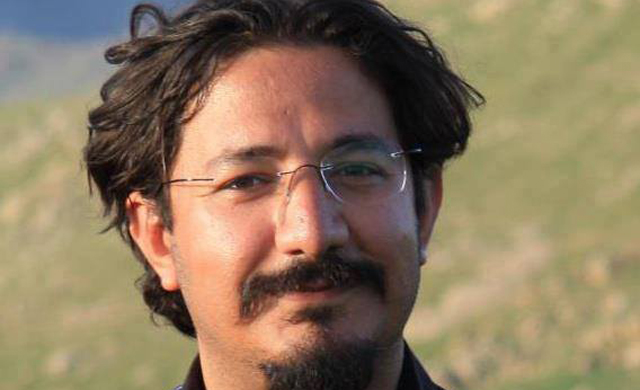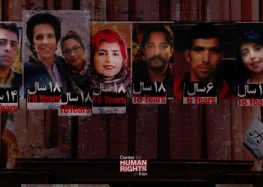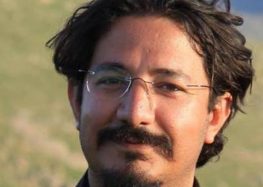Imprisoned Political Activist, Currently Appealing 21-Year Sentence, Denied Adequate Medical Care

Prisoner of conscience Amir Amirgholi, who has appealed the 21-year prison sentence he was issued earlier this year in 2016, has been denied medical treatment outside the prison for severe pancreatitis, his father told the International Campaign for Human Rights in Iran.
“When he was 12 my son was in an accident and lost half of his pancreas. Since then he has been under doctor supervision,” said Abbas Amirgholi. “But during 18 months of imprisonment he has not been taken to a hospital for a check-up or tested for his blood sugar levels even once.”
“We are worried for him and hope that the authorities will agree to let him be checked outside the prison,” he added.
Political prisoners in Iran are singled out for particularly harsh treatment, which often includes denial of medical care.
Amir Amirgholi was expelled from Qazvin Azad University where he was studying industrial engineering in 1999 due to his political activities.
On November 30, 2014 he was arrested by Intelligence Ministry agents and held in solitary confinement for 56 days in the Revolutionary Guard-controlled Ward 2-A of Tehran’s Evin Prison. He was subsequently transferred to the public Ward 8 where he has been incarcerated ever since.
In January 2016 Judge Abolqasem Salavati of Branch 15 of the Revolutionary Court sentenced Amir Amirgholi to 21 years in prison for “insulting the sacred,” “insulting the supreme leader,” “assembly and collusion against national security,” “disturbing public order” and “propaganda against the state.”
Based on Article 134 of Iran’s New Islamic Penal Code, he would be eligible for parole after seven and a half years.
Amir Amirgholi was on a wet hunger strike during most of last month (April 9-May 1, 2016) to protest his condition in prison, but was convinced to end it by concerned relatives and friends.
“The biggest charge against my son is ‘assembly and collusion against national security’ based on his participation in rallies in front of the United Nations office in Tehran in support of the people of Kobani [in Syria, near the Turkish border],” Abbas Amirgholi told the Campaign. “But he was only engaging in a civil action in line with Iran’s own policy in Syria and Iraq in fighting Daesh [terrorist group called the Islamic State].”
“He is also being punished for gathering in front of the Tehran Municipality [headquarters] in support of a street vendor who was assaulted by municipal workers at a metro station,” said Abbas Amirgholi. “What he did was only a peaceful action in defense of workers, not against national security.”
“My request for the judicial authorities is for them to make a judgment based on the truth instead of what has been dictated to them,” added Abbas Amirgholi.
“I think the sentence issued against Amir has been dictated to the judge by the interrogator. That’s unfortunate. I hope the Appeals Court will take legal facts into consideration in their ruling,” he said.


